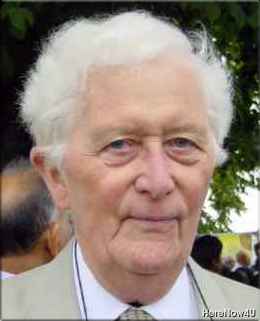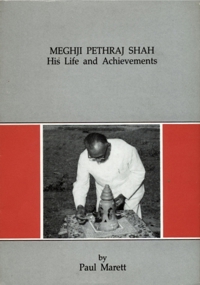
The brothers' business started very modestly. They would buy simple household goods wholesale and would sell them retail with a small profit. Meghjibhai travelled as a door-to-door salesman, on foot to start with. Later he acquired a bicycle. With three years business experience behind him Meghjibhai was the one whose fertile brain conceived new schemes for the business. He got to know the needs of his customers and studied the trends in the market. After a while, the brothers were able to establish a small shop in the old bazaar (not the later bazaar in Biashara Street: a few years after this the old bazaar had fallen into such a decrepit and insanitary state that it was cleared by the municipality). The shop was a simple structure of corrugated iron sheets with basic living accommodation behind. The stock was very varied: cutlery, hosiery, handkerchiefs, shorts, miscellaneous items of stationery like pens, nibs and exercise books, and so on. One successful venture was the manufacture of hair oil, much favoured by the Africans. Meghjibhai got the formula from a Mr. Miraz. A small room behind the shop was devoted to this and the process was kept strictly secret, nobody (except small children) being allowed in. A young African, a Kikuyu called Gatere, made the product by heating petroleum jelly over a primus stove until it liquefied. Various essences and colouring substances were added and the oil was bottled in small bottles with gold labels bearing the trade-name 'Dunia', selling for perhaps fifty cents or so a bottle. Besides selling it in the shop, the brothers were able to sell it in larger quantities to other traders.
As the most active partner, Meghjibhai attended to the contracts with suppliers and other outside work whilst Raichandbhai and Vaghjibhai looked after the shop. As the business was centred in Nairobi, Meghjibhai soon found that he had to spend most of his time there. His reputation for honest y and truthfulness stood him in good stead, as did his friendly and outgoing nature. The business did well and earnings quickly increased. This did not happen without grinding hard work by all three brothers: the years between 1922 and 1929 when the business expanded were not at all easy. When the Nairobi shop was well-established it was found possible to open another one at Mbale, a few miles over the border with Uganda. In 1926 or thereabouts the company was able to invest in a 'box body' Rugby car, a sort of utility van costing around two thousand to three thousand shillings, and in this vehicle Raichandbhai made long sales trips even as far as Kampala in Uganda. (After having obtained good service from it Raichandbhai eventually sold the box body car in Uganda.) Inspired by Meghjibhai's initiative and enterprise, the firm prospered and Meghjibhai himself gained a reputation as a competent and trustworthy merchant which must have been of importance in obtaining finance for further business ventures.
About the same time, around 1926, Raichand Brothers established a small transport business with Gosar Mepa Shah. Meghjibhai and his brothers bought a one and a half ton lorry and Gosarbhai operated it between Nairobi and Fort Hall (now renamed Murang'a). Thus, by 1929, the firm of Raichand Brothers was well-established as a comfortable, if still fairly modest, business. A number of different small business ventures were in operation. So far this success story was not untypical: it was a time of opportunity for the enterprising person prepared to work hard and quite a number of the Indian community had built up reasonably successful businesses.
Shortly after the brothers set up the new business, Meghjibhai felt that he was sufficiently settled to bring his wife to Africa and she joined him before the end of 1922. Monghibai was still very young, being no more than fourteen years old when she came to Africa, but she settled in very quickly and they began a happy married life together. To their great delight, Monghibai gave birth to a daughter on 18th June 1924; in the Indian calendar this was the 15th day of the bright half of the month of Vaishakh. They named the girl Sushila, which means 'one of good conduct'. With his brothers settled in Africa, Meghjibhai was able to bring other relatives over from India as well. Meghjibhai and his family enjoyed friendly relations with other Oshwal families settled in Mombasa, Nairobi and elsewhere and he took care to maintain in this distant land the tradition of hospitality which his father had taught him. It is man's fate that happiness is interwoven with troubles. After the birth of her daughter Monghibai fell ill. Her husband made sure that she had the best possible medical treatment, but to no avail. She never recovered completely and eventually she was bedridden. She struggled against illness for six years but her weakened constitution finally succumbed and in 1930 she breathed her last. She was only twenty-two years old. Meghjibhai, who was himself only twenty-six, found himself now bereft of the wife who had stood by him with her friendly nature, good temper and practical wisdom through the years of hard struggle, and who was not destined to see the days of prosperity. She left behind her a grieving husband, her six-year old daughter and many friends who had been attracted by her pleasant nature. He never forgot this tragedy and in later years his memory of it was to play a large part in his resolve to put good medical facilities at the disposal of ordinary people.
 Dr. Paul Marett
Dr. Paul Marett

